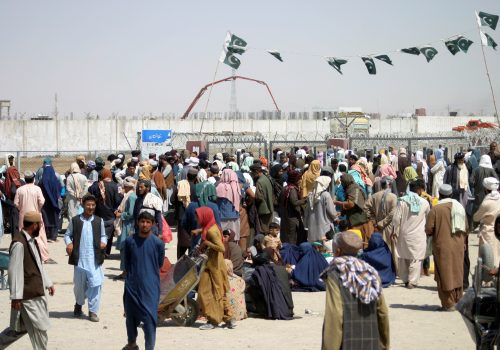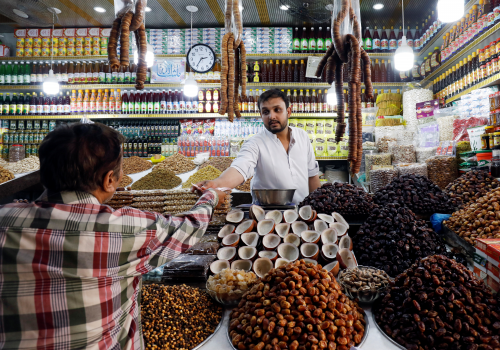Prime Minister Imran Khan is facing an uphill battle on Pakistan’s economy under the double pressures of COVID-19 and the strict demands of the International Monetary Fund (IMF). His government announced an expansionary budget this year that some saw as a first step toward the campaign for re-election in 2023 or sooner. Yet, the underlying conditions of fiscal deficits and an imbalance between the center and the provinces, as well as difficult global developments, have created a governance challenge for the Prime Minister.
As a follow-up to our previous roundtable discussion and issue brief focused on Pakistan’s budget, economy, and growth, the Atlantic Council will host Professor Atif Mian. Professor Mian will assess the current situation and suggest ways to navigate it in the short-term, while identifying longer-term paths toward stability and growth. This discussion will be moderated by Atlantic Council distinguished fellow Shuja Nawaz.
Please join the Atlantic Council’s South Asia Center Wednesday, October 6 at 10:00 a.m. ET / 19:00 p.m. PKT for a conversation on Pakistan’s economy and prospects for growth in the short- and long-term. Also joining the discussion will be South Asia Center nonresident senior fellow and South Asia Director at McLarty Associates Safiya Ghori-Ahmad, and Chief Economist of The Growth Dialogue at the George Washington University School of Business in Washington DC and Adjunct Professor at Johns Hopkins University SAIS Shahid Yusuf.
Featuring
Atif Mian
Professor of Economics, Public Policy, and Finance
Princeton University
Safiya Ghori-Ahmad
Director, South Asia
McLarty Associates
Shahid Yusuf
Chief Economist, The Growth Dialogue
George Washington University School of Business
Moderated by
Shuja Nawaz
Distinguished Fellow, South Asia Center
Atlantic Council

The South Asia Center is the hub for the Atlantic Council’s analysis of the political, social, geographical, and cultural diversity of the region. At the intersection of South Asia and its geopolitics, SAC cultivates dialogue to shape policy and forge ties between the region and the global community.


